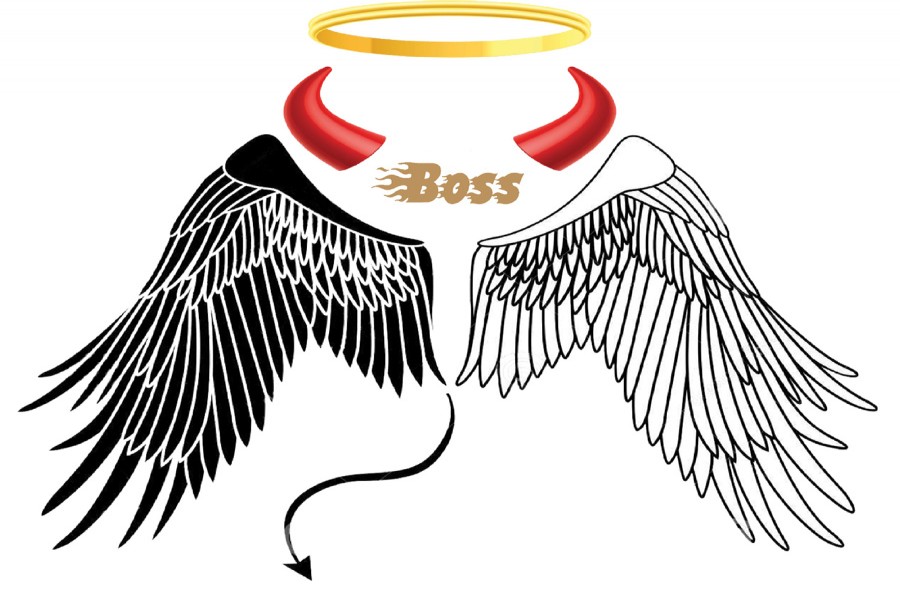One of the common reasons why someone is being labelled by his/her staff members as a "boss from hell", quite not surprisingly, is micromanagement. Other descriptions associated with this "crime" include being a control freak, tireless follow-ups, constantly watching over staff members' shoulders, giving unnecessary instructions, treating everyone else as "stupid", failure to recognise the capabilities of staff members, failure to recognise the staff members' prior experience and style in handling similar tasks.
Yes, we all complain about such a boss from hell, don't we? The real question is: are you committing the same crime yourself? What is your staff member thinking and saying about your leadership style as you're reading this article?
Remember your leadership style has nothing to do with your intent -- it actually is your staff members' perception based on their observations on your pattern of actions and behaviours. Your staff members most likely have very little idea, if any, about your true intent. Given what you do with and to them, they perceive you to be of a certain style and in this particular article -- you may already be a micromanager in their minds! And you can debate all you want about whether your staff members' perception is fair to you or not.
In your defence, you want to make sure the task or the goal is achieved. You can do it yourself but you don't have the time. You have already advanced above the "do-er" level and have become a manager! But at the same time, you simply are not sure about whether your staff member can do the task to your satisfaction. What is wrong with giving your staff members detailed instructions and guidelines and making sure they follow every step along the way?
The key to me is not so much about micromanagement itself but about perception management -- the amount of instructions, guidelines and monitoring you give that are "appropriate" for the specific staff member to achieve a specific task. If you over-instruct and over-monitor a specific staff member to perform a specific task when you don't need to, there's a good chance you'll be perceived as a micromanager. On the contrary, if you under-instruct and under-monitor a specific staff member to perform a specific task when you should, you won't be perceived as a good leader either.
One of the things you should consider is the ability of your staff member with respect to the specific task you are assigning. Remember that the same staff member can have high ability to perform one specific task but low ability to perform another. Ability, according to Dr. Paul Hersey in his Situational Leadership Model, comprises knowledge, experience and skills. You can only claim you know your staff member's ability to perform a specific task if you know all these three aspects.
So before you actually talk to your staff member to assign a specific task, you should assess his/her ability to perform this task based on your observation and experience in working with this staff member and based on his/her track record. But if you're not sure, you could ask the staff member directly -- and why don't you? After you have described the specific task and goal you want your staff member to perform, what's preventing you from taking just one minute to ask all the following three questions (in a nice way, of course):
* "Do you know how to do this?"
* "Have you done this before?"
* "Do you do this often? When's the last time you did this?"
If your staff member's answer is yes to all these three questions, then you're reasonably sure about his/her ability to perform the specific task.
You should also recognise the significant difference between letting your staff member know about the specific task and the goal you're asking him/her to perform, and the step-by-step instructions to achieve the goal. You as a leader in all cases should let your staff members know every time what the task is and the goal is. Use SMART criteria to describe. Don't simply give the intermediate milestones -- "begin with end in mind" as Stephen Covey said. Be as transparent as possible about what you know and what you don't know about the task. If you don't know all the details about the task yourself at this stage, say so and most staff members would understand.
Whether you need to give step-by-step instructions and guidance to your staff members depends on their ability to perform the specific task. In general, the lower is your staff member's ability to perform the specific task, the more step-by-step instructions and guidance you need to provide. If you ask the three questions and understand your staff member does have the required ability to perform the specific task, you can simply "manage by objectives" and let your staff member do it.
If you do the above, the chance of you being perceived to be a micromanager and thereby a boss from hell is lower.
Of course, when your staff member completes the task, don't forget to say "thank you" or "job well done" to show your appreciation.
Eric Hwang is the Head of HR Consultancy at Gravel, a Hong Kong-based global firm.
[email protected]


